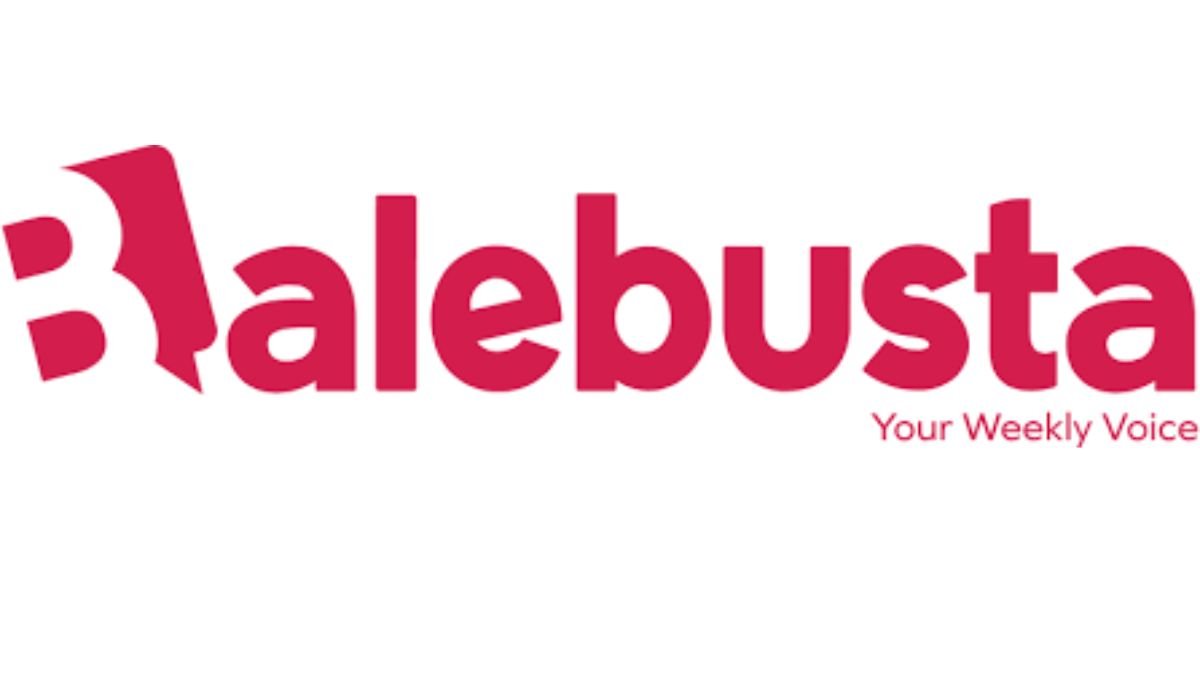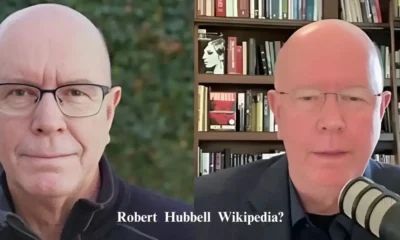GENERAL
Apex Position: Mastering the Pinnacle of Strategy and Precision

The apex position stands as a critical concept across multiple disciplines, from racing to military tactics and even in strategic thinking. This term denotes the highest or most effective point in a path, curve, or plan where performance and results peak. Understanding the vertex position means understanding how to reach the pinnacle of efficiency, speed, or influence. In this article, we’ll dive deep into its diverse applications, from motorsports to leadership, and explore how mastering this point can result in improved outcomes.
Whether you’re a racer seeking the perfect corner entry, a strategist aiming to outmaneuver opponents, or a business leader optimizing your team’s performance, identifying and mastering the vertex positionis key. Let’s unravel its importance, mechanics, and how you can apply it to gain an edge in your respective field.
What is the Apex Position?
At its core, the vertex position refers to the point in a curve where a trajectory comes closest to the inside edge. In motorsports, it’s the moment when the driver is closest to the corner’s inner edge, maximizing exit speed. However, the term is also widely used metaphorically in business, design, aviation, and combat planning to describe the optimal point of execution within a larger strategy.
The term ‘apex’ implies the tip or the topmost point, while ‘position’ suggests a place or status within a system or structure. Together, they reflect a moment of strategic advantage.
Vertex Position in Motorsports
In racing, the vertex position is everything. It defines how quickly a driver can move through a corner and how efficiently they can maintain momentum. There are generally three types of apexes:
Early Apex
- Occurs before the middle of the turn.
- Results in a sharper turn exit.
- Risky if traction is limited.
Geometric (Middle) Apex
- Ideal for maintaining balance.
- Offers steady control through the curve.
- Preferred in dry, predictable conditions.
Late Apex
- Occurs after the midpoint of the turn.
- Ideal for setting up a fast exit.
- Enhances acceleration post-turn.
Professional drivers study every curve to determine the best vertex position for entry and exit speed. By optimizing this point, lap times decrease, and performance increases.
Strategic Use of Apex Position in Business and Leadership
In business, the vertex position symbolizes the peak moment in strategic planning or execution. It’s where preparation, timing, and action align to create the maximum impact. This concept can be observed in:
- Project Management: Reaching the apex point during execution ensures deliverables are completed with high efficiency.
- Sales Strategy: Identifying the right timing to pitch a product after building trust marks the apex of the sales funnel.
- Leadership: Influential leaders know when to intervene or delegate, positioning themselves at the apex of operational dynamics.
Using NLP keywords like “strategic alignment,” “optimal positioning,” and “execution peak” enhances understanding of how businesses can replicate this model to their advantage.
Apex Position in Aviation and Aerospace
Pilots refer to the vertex position when discussing flight trajectory and missile targeting. It indicates the highest point of an arc or the most advantageous spot in a maneuver. Fighter pilots and astronauts both rely on apex data to:
- Optimize launch angles.
- Predict reentry paths.
- Ensure precision strikes.
In these cases, the vertex position becomes a matter of life and death, not just performance.
Athletic Performance and the Apex Position
Athletes, especially in disciplines like gymnastics, track & field, and snowboarding, constantly chase their physical apex. The vertex position here refers to:
- Maximum jump height.
- Optimum speed on curves.
- Balance during acrobatic moves.
Coaches use data analytics and biomechanics to train athletes to hit their performance apex—balancing power, agility, and timing.
Comparison Chart: Apex Position Across Fields
| Field | Definition of Apex Position | Key Benefit | Strategic Importance |
| Motorsports | Closest point to the curve’s inside | Faster lap times | Maximizes speed and control |
| Business | Peak point in strategy execution | Higher ROI | Enhances operational impact |
| Aviation | Highest point in trajectory or maneuver | Precision in flight or strike | Critical for safety and accuracy |
| Athletics | Point of maximum height or speed | Enhanced performance | Improves training efficiency |
| Military Strategy | Optimal positioning in tactical deployment | Decisive victories | Determines mission success |
Applications of the Apex Position
In natural language processing and AI, algorithms may be designed to detect a vertex position in data curves, learning phases, or optimization processes. Developers fine-tune machine learning models at their training apex to prevent overfitting or undertraining.
When applied correctly, the vertex position in machine learning contributes to:
- Enhanced predictive power.
- Reduced bias in data analysis.
- Higher operational precision in AI systems.
Achieving the Apex Position in Daily Life
Every individual has an vertex position in their personal and professional journey. It may be a time in life when you are most productive or a task where your skill shines. Here’s how to identify it:
- Track Your Performance: Use tools and journals to monitor when you are most active and effective.
- Understand Your Environment: Like a racer knows the track, knowing your surroundings helps you optimize actions.
- Leverage Feedback: Constructive insights can reveal the peak moments of your actions.
With discipline and continuous learning, anyone can move closer to their vertex position
Psychological Perspective: Mindset and the Apex
From a mental health viewpoint, achieving the apex position may correspond with flow state—a term used in psychology to define when a person is fully immersed in a task with energized focus. In this zone:
- Distractions fade.
- Productivity peaks.
- Creativity flows freely.
Reaching this apex involves mindfulness, reduced multitasking, and alignment of passion with purpose.
Importance of Timing in Hitting the Apex
Timing is everything. In driving, if you hit the apex too soon or too late, you compromise the entire turn. Similarly, in life and business, acting too early or too late can lessen the outcome.
To optimize timing:
- Analyze Patterns: Recognize when key variables are aligning.
- React Fast: Be ready to adapt to changes.
- Stay Calm: A composed mindset improves timing under pressure.
Mastering timing means you’ll not only hit the vertex position—you’ll dominate it.
How Technology Enhances Apex Optimization
Modern tools like telemetry systems, AI-driven analytics, and high-speed cameras help individuals and teams identify and optimize their vertex positions. For instance:
- Motorsports: Telemetry measures braking, acceleration, and steering.
- Business Intelligence Software: Detects peak moments in marketing and sales funnels.
- Wearables: Help athletes know when they hit their physical peak.
Technology doesn’t replace intuition but enhances it by providing precise data to act upon.
Mistakes to Avoid When Targeting the Apex Position
Despite its advantages, aiming for the apex without preparation can lead to mistakes. Here are common pitfalls:
- Overconfidence: Misjudging the curve or context.
- Lack of Data: Poor decision-making due to insufficient analysis.
- Rigidity: Not adjusting strategy mid-course.
Success lies in being flexible, prepared, and responsive to real-time feedback.
Training for Apex Mastery
To consistently reach the vertex position, you must train across five core areas:
- Observation: Learn to analyze patterns and trends.
- Practice: Simulate conditions repeatedly.
- Feedback Loop: Review and refine actions regularly.
- Endurance: Build resilience for sustained performance.
- Risk Assessment: Know when to push and when to hold back.
When these pillars are reinforced, reaching the apex becomes less accidental and more intentional.
Conclusion
The apex position is more than a physical point—it’s a strategic, psychological, and professional marker of excellence. Whether you’re cornering on a racetrack, leading a business project, analyzing data, or reaching your creative peak, mastering the apex ensures optimal results. It’s about timing, control, feedback, and smart positioning.
By continuously refining your approach and learning from feedback, you’ll be equipped to hit the vertex position not just once but consistently across all domains of life.
FAQs
What does vertex position mean in racing?
The apex position in racing is the point where a vehicle is closest to the inside of a turn, allowing for the most efficient and fastest path through the corner.
How can I find my vertex position in business?
In business, your vertex position occurs when planning, resources, and execution align perfectly to achieve peak results. Use data analysis and performance tracking to identify it.
Is the apex position always visible?
No, especially in strategic contexts, the vertex position might only become clear in hindsight or through advanced analysis tools.
Can technology help in identifying the vertex position?
Yes, technology such as sensors, data analytics, and machine learning can help in pinpointing the optimal point for maximum efficiency and impact.
How is the vertex position different from the peak?
While both imply high points, the apex position specifically refers to the point of maximum strategic effectiveness within a path or cycle, not just a high point.
What role does timing play in hitting the apex?
Timing is crucial. Hitting the apex at the right moment maximizes momentum and effectiveness. Mistimed actions reduce benefits or even lead to failure.
GENERAL
Myloxarindor Qylendrithal: Unlocking the Meaning Behind the Mystery

Myloxarindor qylendrithal is a term that immediately sparks curiosity. It sounds rare, complex, and almost mythical. Whether you encountered it in a creative discussion, a fictional setting, or as part of a conceptual idea, this phrase carries a sense of depth and imagination. In this article, we explore what myloxarindor qylendrithal represents, its possible origins, and why it is gaining attention in creative and digital spaces.
The Concept Behind Myloxarindor Qylendrithal
At its core, myloxarindor qylendrithal appears to symbolize something abstract and imaginative. The structure of the phrase suggests fantasy-inspired language, possibly rooted in world-building or speculative fiction. Many unique terms like this are created to represent powerful forces, hidden knowledge, or advanced civilizations in storytelling. The layered sound and rhythm give it a mystical tone that feels intentional and artistic. In creative writing and branding, such distinctive phrases help build identity and intrigue. Myloxarindor qylendrithal stands out because it feels both ancient and futuristic at the same time.
Possible Origins and Linguistic Style
The linguistic style of myloxarindor qylendrithal hints at constructed language patterns often used in fantasy literature and science fiction. Writers frequently develop fictional languages to add realism and depth to imaginary worlds. The phonetic structure resembles high fantasy naming conventions, where syllables are extended and dramatic. This technique enhances immersion and emotional impact. It may also reflect elements of symbolic naming, where the sound of a word carries as much weight as its meaning. As a coined term, myloxarindor qylendrithal demonstrates how language can be shaped creatively to evoke mystery and power.
Creative and Digital Applications
In modern digital culture, unique phrases like myloxarindor qylendrithal can be used for branding, storytelling, gaming, or artistic projects. A distinctive name gives creators a competitive edge by ensuring originality and memorability. For online communities, fantasy games, or fictional universes, such a term can represent a kingdom, artifact, philosophy, or energy source. It may also serve as a symbolic concept in digital art or immersive narratives. Because it is uncommon and highly original, it holds strong SEO potential as well. Unique keywords often rank more easily when paired with meaningful content and strategic optimization.
Symbolism and Interpretative Meaning
The meaning of myloxarindor qylendrithal can be interpreted in many ways depending on context. It might symbolize transformation, hidden wisdom, or a powerful realm beyond ordinary perception. The layered sound of the phrase gives it an almost ceremonial feel, suggesting importance and depth. In speculative storytelling, names like this often represent ancient forces or lost civilizations. Symbolic language allows readers to project their own meaning onto the term, making it flexible and imaginative. This openness adds emotional resonance and creative freedom.
Why Unique Terms Like This Matter
In an era dominated by repetitive content, originality is valuable. Myloxarindor qylendrithal demonstrates the power of creative language in building strong identity and differentiation. Unique terminology strengthens brand presence, supports world-building, and enhances memorability. It encourages deeper engagement because people naturally want to understand what unfamiliar words mean. From a search engine perspective, distinctive phrases reduce competition and increase visibility. More importantly, they inspire creativity and intellectual exploration.
Conclusion
Myloxarindor qylendrithal is more than just an unusual phrase. It represents imagination, linguistic creativity, and the power of unique expression. Whether used in storytelling, branding, or conceptual design, it carries depth and intrigue. In a crowded digital world, originality stands out—and this term embodies that principle perfectly. By embracing creative language like myloxarindor qylendrithal, writers and creators open doors to new ideas and limitless possibilities.
FAQs
What is myloxarindor qylendrithal?
It is a unique, imaginative term often interpreted as a symbolic or fantasy-inspired concept.
Is myloxarindor qylendrithal a real word?
No, it appears to be a coined or constructed phrase rather than a dictionary term.
Where can myloxarindor qylendrithal be used?
It can be used in creative writing, gaming, branding, or digital storytelling projects.
Why are unique phrases like this important?
They help create originality, improve memorability, and strengthen identity.
Does myloxarindor qylendrithal have a fixed meaning?
No, its meaning depends on context and creative interpretation.
GENERAL
American Lifestyles: A Closer Look at Culture, Work, and Everyday Living

American lifestyles are often described as dynamic, diverse, and constantly evolving. From busy urban centers to quiet rural towns, life in the United States reflects a blend of tradition and modern ambition. The country’s size, cultural diversity, and economic opportunities shape how people live, work, and spend their free time. While no single definition fits everyone, certain patterns stand out in American lifestyles, including a focus on independence, career growth, innovation, and personal freedom. Understanding these elements helps explain how Americans approach daily living and long-term goals.
Cultural Diversity and Identity
One of the strongest features of American lifestyles is cultural diversity. The United States has long been shaped by immigration, bringing together people from different backgrounds, languages, and traditions. This multicultural environment influences food, music, fashion, holidays, and even communication styles. Cities like New York City and Los Angeles are prime examples of cultural blending, where communities celebrate both American traditions and their heritage.
This diversity encourages openness and creativity in everyday life. Families may celebrate Thanksgiving while also observing cultural festivals tied to their ancestry. As a result, American lifestyles often combine global influences with local customs. Identity becomes personal rather than fixed, allowing individuals to express themselves freely through lifestyle choices, careers, and social circles.
Work Culture and Career Focus
Work plays a central role in shaping American lifestyles. Many Americans prioritize career growth, entrepreneurship, and professional achievement. The idea of the “American Dream” still influences how people view success, often linking it to financial stability, homeownership, and upward mobility. Long working hours and competitive industries reflect a strong work ethic that values productivity and ambition.
At the same time, modern shifts have changed workplace culture. Remote work, digital entrepreneurship, and the gig economy now allow more flexibility. Professionals in cities like San Francisco often work in technology-driven environments, while others pursue freelance careers from home. This blend of hard work and innovation continues to shape American lifestyles, balancing ambition with new approaches to work-life balance.
Family Life and Social Values
Family structures in the United States vary widely, reflecting social change and personal choice. Nuclear families, single-parent households, blended families, and same-sex couples all contribute to the country’s social landscape. Respect for individual decisions is a core part of American lifestyles, giving people the freedom to define what family means to them.
Community involvement also plays an important role. School events, neighborhood gatherings, and volunteer work help build social connections. While independence is valued, Americans often support local causes and charities. This balance between personal freedom and community engagement defines many aspects of social life, creating both private space and shared responsibility.
Urban vs. Suburban and Rural Living
Geography significantly shapes American lifestyles. Urban living in cities like Chicago offers fast-paced environments, diverse job markets, and vibrant nightlife. Residents often rely on public transportation and live in apartments or condominiums close to work and entertainment hubs. City life emphasizes convenience and cultural access.
In contrast, suburban areas focus on family-friendly neighborhoods, larger homes, and quieter surroundings. Rural communities offer even more space, often centered around agriculture or small businesses. These differences show how lifestyle choices depend on personal priorities such as career goals, cost of living, and preferred pace of life. Each setting reflects a different version of American living.
Food, Entertainment, and Leisure
Food culture highlights the variety found in American lifestyles. From fast food chains to farm-to-table restaurants, eating habits range widely. International cuisines thrive alongside classic American dishes, showing the impact of globalization. Dining out, food delivery apps, and social gatherings centered around meals are common parts of daily life.
Entertainment also shapes leisure time. Sporting events, music festivals, streaming platforms, and outdoor recreation offer countless options. The influence of major entertainment hubs like Hollywood has made American media globally recognizable. Whether hiking in national parks or attending concerts, Americans value recreation as a way to recharge and connect socially.
Technology and Modern Living
Technology deeply influences modern American lifestyles. Smartphones, social media, and e-commerce platforms shape communication and shopping habits. Digital payments, online education, and remote healthcare services have become normal parts of daily routines. Innovation drives convenience and efficiency in both personal and professional life.
The rapid adoption of new technologies reflects a forward-thinking mindset. Many households rely on smart home devices, streaming services, and digital work tools. This tech-driven culture supports entrepreneurship and global connectivity, making American lifestyles adaptable and future-focused. While technology brings challenges such as screen time and privacy concerns, it remains central to how people live today.
Conclusion
American lifestyles cannot be defined by a single description. They are shaped by diversity, ambition, innovation, and personal freedom. From cultural traditions and career goals to family values and technological advancement, daily life in the United States reflects constant change. Urban, suburban, and rural communities all contribute to the broader picture of American living. By understanding these elements, we see that American lifestyles are less about uniformity and more about choice, opportunity, and self-expression in a fast-moving world.
FAQs
What are American lifestyles known for?
American lifestyles are known for diversity, independence, career focus, and a strong emphasis on personal freedom and innovation.
How does culture influence American lifestyles?
Cultural diversity shapes food, traditions, social values, and identity, creating a blend of global and local influences.
Is work important in American lifestyles?
Yes, work and career growth are major priorities, often connected to financial stability and personal success.
What role does technology play in daily life?
Technology supports communication, remote work, entertainment, and online services, making life more connected and efficient.
Do all Americans live the same way?
No, lifestyles vary widely depending on location, culture, income, and personal choices, reflecting the country’s diversity.
GENERAL
Balabusta Magazine: Where Culture, Creativity, and Community Meet

The Balabusta Magazine is more than just a publication; it’s a celebration of identity, heritage, and modern living. With a fresh voice and thoughtful storytelling, the magazine connects readers to culture, food, art, and strong community values. Whether you are passionate about meaningful journalism or simply love discovering inspiring stories, this lifestyle magazine offers depth without feeling heavy. It blends tradition with contemporary insight in a way that feels warm, intelligent, and refreshingly authentic.
The Meaning Behind The Balabusta Magazine
The word “balabusta” traditionally refers to a capable, strong, and resourceful woman who manages life with grace and determination. The Balabusta Magazine embraces that spirit and turns it into a powerful editorial identity. It focuses on empowered living, cultural pride, and thoughtful storytelling that resonates with modern readers. Instead of chasing trends, the magazine highlights timeless values such as family, resilience, creativity, and leadership.
Through its name and mission, the publication honors heritage while encouraging personal growth and innovation. It stands as a symbol of confidence and community strength. Readers feel represented and understood, which is why the magazine continues to build a loyal and engaged audience.
Editorial Focus and Content Style
The Balabusta Magazine covers a wide range of lifestyle topics, including food culture, family traditions, wellness, entrepreneurship, and creative expression. Its content feels carefully curated rather than mass-produced. Articles are written in a warm yet professional tone, making complex subjects easy to understand without oversimplifying them.
One of the publication’s strengths lies in its narrative journalism approach. Instead of quick summaries, it dives into personal stories, cultural insights, and meaningful conversations. Readers are not just consuming content; they are connecting with lived experiences. This storytelling style gives the magazine depth and emotional resonance.
Celebrating Food, Tradition, and Modern Living
Food plays a central role in The Balabusta Magazine, reflecting how cuisine connects generations and preserves cultural identity. Recipes are not just instructions; they are stories of heritage, memory, and family traditions. This focus on culinary storytelling adds authenticity and warmth to the publication.
At the same time, the magazine explores modern lifestyle trends, sustainable living, mindful wellness, and creative entrepreneurship. It balances nostalgia with innovation, showing readers how to honor their roots while embracing change. This unique blend makes the content relatable to both older and younger audiences.
Community, Empowerment, and Representation
A key reason why The Balabusta Magazine stands out in the crowded media landscape is its strong sense of community. It highlights voices that are often overlooked and gives space to diverse perspectives. Interviews with creators, leaders, and everyday changemakers help readers feel inspired and connected.
The magazine promotes empowerment without being overly dramatic or cliché. Its approach is subtle yet impactful, encouraging readers to take pride in their identity and pursue meaningful goals. By focusing on representation and inclusivity, it builds trust and long-term loyalty among its audience.
Why The Balabusta Magazine Stands Out Online
In today’s digital publishing world, many lifestyle platforms rely heavily on fast content and viral trends. The Balabusta Magazine takes a different path by prioritizing quality over quantity. Its long-form articles, rich storytelling, and culturally grounded themes provide real value rather than surface-level entertainment.
From an SEO perspective, the magazine integrates relevant topics such as cultural lifestyle, empowered women, food heritage, and modern community living. It maintains a natural flow of keywords without sounding forced or repetitive. This strategic yet organic approach helps it rank well while keeping the reading experience smooth and enjoyable.
Conclusion
The Balabusta Magazine is a powerful example of how modern publishing can honor tradition while embracing progress. With its focus on culture, food, empowerment, and authentic storytelling, it creates a meaningful space for readers seeking depth and connection. The publication stands out not because it shouts the loudest, but because it speaks with clarity and heart.
For anyone looking for a lifestyle magazine that feels intelligent, warm, and genuinely inspiring, The Balabusta Magazine delivers substance without sacrificing style. It proves that strong storytelling and cultural pride can thrive beautifully in the digital age.
FAQs
What is The Balabusta Magazine?
The Balabusta Magazine is a lifestyle publication that celebrates culture, food, community, and empowered living through meaningful storytelling.
What type of content does The Balabusta Magazine publish?
It covers topics such as food heritage, family traditions, wellness, entrepreneurship, and cultural identity.
Who is The Balabusta Magazine for?
The magazine is designed for readers who value culture, authenticity, strong community connections, and modern lifestyle insights.
Is The Balabusta Magazine focused on women’s empowerment?
Yes, empowerment is a core theme, inspired by the meaning of “balabusta,” which represents strength, capability, and leadership.
Why is The Balabusta Magazine unique?
Its blend of cultural storytelling, modern lifestyle content, and community-driven journalism makes it stand out from trend-focused media platforms.
-

 GENERAL7 months ago
GENERAL7 months agoRobert Hubbell Wikipedia: What’s His 2025 Biography Guide?
-

 EDUCATION9 months ago
EDUCATION9 months agoJay Kuo Substack: Unpacking the Voice of Legal Insight
-

 GENERAL9 months ago
GENERAL9 months agoDream Cake: A Decadent Delight Worth Savoring
-

 GENERAL9 months ago
GENERAL9 months agoChris Hedges Substack: A Voice of Dissent in the Digital Age
-

 ENTERTAINMENT9 months ago
ENTERTAINMENT9 months agoTyler the Creator Dad Truth
-

 EDUCATION9 months ago
EDUCATION9 months agoEconomic Blackout Results: The Financial Domino Effect
-

 TECHNOLOGY9 months ago
TECHNOLOGY9 months agoHow to Cancel Substack Subscription
-

 GENERAL9 months ago
GENERAL9 months agoMax Azzarello Substack: Inside the Mind of a Radical Truth-Seeker
